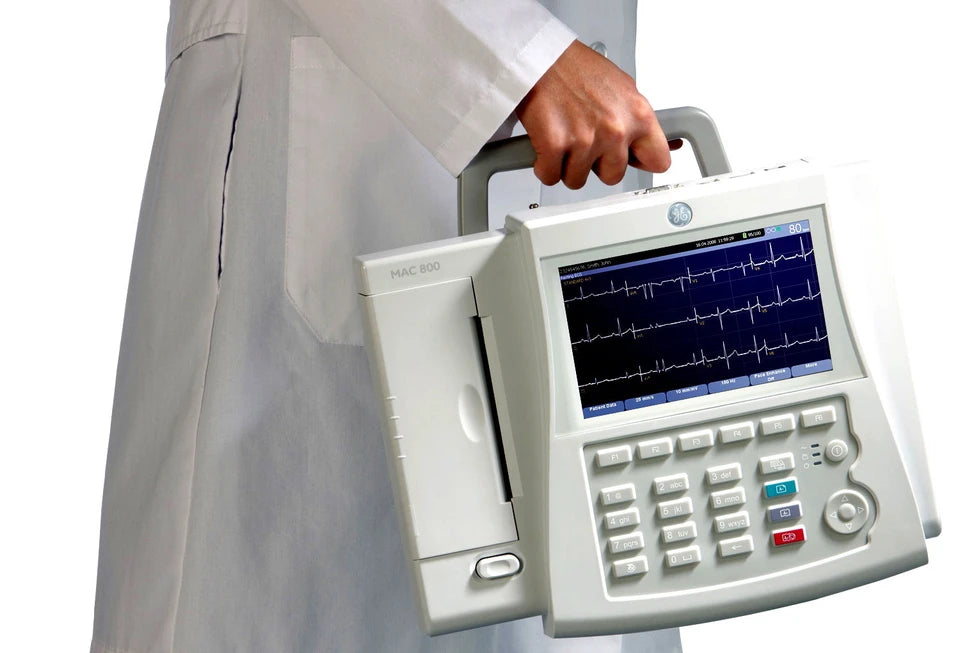
The Role of EKG Machines in Modern Dentistry
Electrocardiography (EKG or ECG) machines are typically associated with cardiology, but their application in dentistry is increasingly recognized for its importance in enhancing patient care and safety. This article delves into the various uses of EKG machines in dental practices, shedding light on their benefits and the added value they bring to dental professionals and patients alike.
Understanding EKG Machines
An EKG machine records the electrical activity of the heart over a period of time. It is a critical tool in diagnosing and monitoring heart conditions. The machine works by attaching electrodes to the patient's skin, which then detect electrical signals produced by the heart. These signals are graphed, allowing healthcare providers to analyze heart rhythm and function.
Why EKG Machines Are Important in Dentistry
Pre-Surgical Assessment
Dental procedures, especially those involving sedation or anesthesia, can pose significant risks to patients with underlying heart conditions. EKG machines allow dental professionals to conduct a thorough pre-surgical assessment, ensuring that the patient's cardiovascular system is stable enough to withstand the procedure. This proactive measure can prevent complications such as cardiac arrest during dental surgery. For more information on safe dental procedures for heart patients, see How to Ensure Safe Dental Procedures for Patients with Heart Conditions.
Monitoring During Procedures
For lengthy or complex dental procedures, continuous monitoring of a patient’s heart activity is crucial. EKG machines provide real-time data, allowing dentists to detect any signs of distress early. This immediate feedback is vital for making quick, informed decisions to safeguard the patient's health.
Post-Operative Care
After a dental procedure, especially those involving anesthesia, monitoring the patient's heart function can be essential. An EKG machine helps in ensuring that the patient is recovering well and that no adverse cardiac events occur during the post-operative phase.
Benefits to Patients
Enhanced Safety
The integration of EKG machines in dental clinics significantly enhances patient safety. By monitoring heart activity, dentists can promptly address any irregularities, thereby reducing the risk of serious complications. This is particularly important for patients receiving treatments such as dental implants where comprehensive care is crucial.
Increased Confidence
Patients with known heart conditions often feel anxious about undergoing dental procedures. Knowing that their dentist has the capability to monitor their heart function can provide immense reassurance, making them more likely to seek necessary dental care without fear.
Improved Outcomes
By using EKG machines, dentists can tailor their approach based on the patient’s cardiovascular health, leading to better overall outcomes. This personalized care ensures that all aspects of the patient's health are considered during treatment. Regular check-ups also play a vital role in maintaining dental and overall health, as detailed in The Importance of Regular Dental Check-Ups.
Benefits to Dental Professionals
Better Risk Management
Dentists can manage potential risks more effectively with the use of EKG machines. Early detection of cardiac issues allows for timely intervention, which is crucial for high-risk patients undergoing procedures like dental implants or surgical dental extractions.
Enhanced Professional Reputation
Adopting advanced monitoring tools such as EKG machines positions a dental practice as a leader in patient safety and care. This not only attracts more patients but also builds a reputation for excellence in the dental community.
Continuing Education and Training
The use of EKG machines encourages ongoing education and training for dental professionals. Staying updated with the latest technology and practices ensures that dentists can provide the highest standard of care. Understanding and implementing advanced procedures, such as those discussed in Understanding Dental Implants: Procedures and Benefits, further enhances their expertise.
FAQs About the Use of EKG Machines in Dentistry
Q1: Why are EKG machines used in dental practices?
- A1: EKG machines are used in dental practices to monitor the heart activity of patients, especially those undergoing procedures that involve sedation or anesthesia. This helps ensure patient safety by detecting any cardiac irregularities early.
Q2: Can a dentist interpret an EKG?
- A2: While dentists are not typically trained to interpret EKGs to the same extent as cardiologists, many receive basic training to understand the results and identify potential issues. In complex cases, they may collaborate with a cardiologist.
Q3: Are EKG machines used for all dental procedures?
- A3: No, EKG machines are generally used for patients with known heart conditions or those undergoing extensive dental procedures that require sedation or general anesthesia.
Q4: How does an EKG machine work in a dental setting?
- A4: The machine records the electrical activity of the patient’s heart via electrodes attached to the skin. This data is monitored in real-time during the dental procedure to ensure the patient's heart is functioning properly.
Q5: What are the benefits of using EKG machines in dentistry?
- A5: The benefits include enhanced patient safety, early detection of cardiac issues, improved patient confidence, and better overall outcomes due to personalized care.
Q6: Are there any risks associated with using EKG machines in dentistry?
- A6: The use of EKG machines is generally safe and non-invasive. The primary purpose is to monitor and ensure patient safety during dental procedures, with minimal risk involved.
